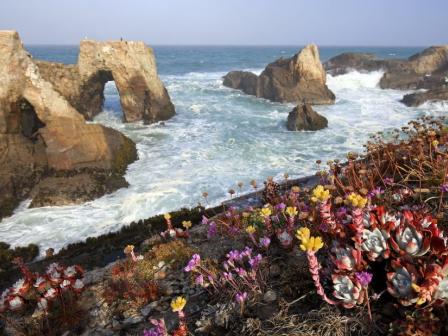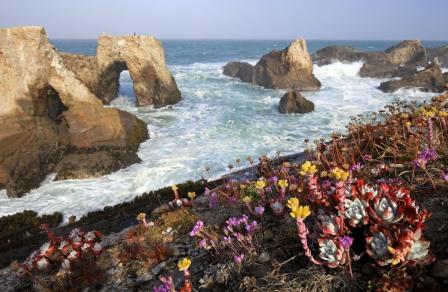
EDA Supports Mendocino County’s Independent Retailers Transition to Digital Economy
Straddling a winding section of California’s “Lost Coast,” Mendocino County is a picturesque, semi-rural region known for its dozens of wineries and microbreweries, as well as a stunning natural landscape that makes it a popular weekend destination for residents of nearby San Francisco. The county’s economy, therefore, was especially hard hit by travel restrictions necessitated by the coronavirus pandemic. Overnight, store traffic to many of the small businesses dependent on out-of-county visitors evaporated. Without revenue from tourism — one of Mendocino County’s three largest industries — the local economy was in peril.

Heavily dependent on tourism, picturesque Mendocino County was hard hit by travel restrictions necessitated by the coronavirus pandemic. A portion of the California Coastal National Monument in Mendocino County is pictured in this Bureau of Land Management photo.
“A lot of our businesses were unable to connect with global marketplaces because they didn’t have ecommerce training or expertise,” recalled Mary Anne Petrillo, CEO of the West Business Development Center, a Mendocino-based non-profit focused on providing financial education and entrepreneurship training to small enterprises. “How do we get these businesses to generate more revenue?”
At the time the pandemic hit, West Business Development Center was the principal contractor on an EDA grant to the County of Mendocino awarded to support economic recovery from the Redwood Valley Fire of 2017. Petrillo and her colleagues leveraged resources and social capital they’d built with the support of that grant and expanded a successful suite of digital learning hubs to help the local economy confront this new challenge. The novel capacity-building initiative was designed to level the playing field for rural micro-entrepreneurs by imparting to them the skills and knowledge needed to move their businesses online.
But the work didn’t stop there. As the economic impacts of the pandemic lingered, West Business Development Center examined how it could help Mendocino County retail survive the important holiday season. Center marketing director Alison de Grassi innovated a cooperative marketing initiative designed to aggregate resources for shared benefit.

West Business Development Center created and placed digital advertising to drive traffic to a cooperative, online marketplace it developed where visitors could click-through to the ecommerce storefronts of nearly four-dozen local merchants.
The center rolled-out a digital holiday marketplace on its website, showcasing locally produced products including jewelry, art, crafts, olive oils, and cheeses. Visitors to the microsite could click-through to any of the 46 participating retailers’ digital storefronts to browse additional products or make a purchase. The effort was marketed through a combination of earned media and online advertising targeting the important San Francisco and Sacramento markets. West Business Development Center’s efforts helped secure more than 2.3 million impressions at an impressive cost per mille (CPM) of just $1.08. A post-holiday survey of participating merchants registered almost universally positive feedback from respondents, with many expressing a desire to participate in future seasonal promotions.
“We’re not going to become Amazon,” de Grassi explained, “but this pilot has taught our merchants about what works and what doesn’t and how to make it easier for the small business owner to participate in ecommerce.”
EDA has a long history of successfully supporting recovery and resiliency efforts by facilitating the timely and effective delivery of Federal economic development assistance to support long-term community economic recovery planning and project implementation, redevelopment, and resiliency. For more, please visit the .
